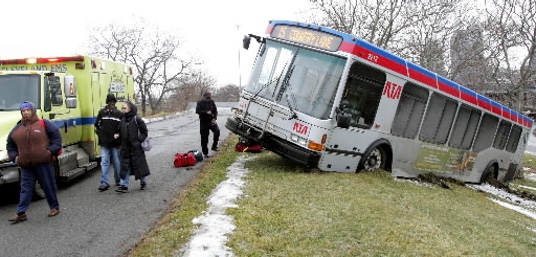
Media accounts surfaced this past week that long time Greater Cleveland Regional Transit Authority Board President George Dixon III has resigned. His resignation comes amid allegations that he failed to pay premiums for health care insurance provided to him by RTA. First appointed to the RTA Board in 1992 by former Mayor Mike White, Dixon has been continually reappointed as a representative of the City of Cleveland by subsequent Cleveland mayors. Dixon has served as president of the board since 1994, a position that pays around $6000 per year.
The allegations against Dixon are just that — allegations — and will remain that way until there is proof of any wrongdoing. As a result, these comments are in no way a reflection on the truth or veracity of any claims against Dixon, someone I have met but have no personal relationship with.
As an outsider looking in, my initial reaction is that it seems awfully strange that, if in fact Dixon failed to pay for his health care for “many years,” as asserted in media accounts, why such an error was not picked up by an auditor, especially since RTA receives state and federal funding or just in the normal course of the agencies own accounting practices.
However, in this whole scenario, there is a larger problem. And that is, Dixon stayed too long. Cleveland mayors who continually reappointed Dixon missed the logic of citizen boards for public agencies. No matter how good a job a public trustee is doing, positions should be rotated at least every decade to give an opportunity to other citizen to participate. Many public boards, such as State University Trustees, where trustees serve nine-year terms, have a limit of one term. Many other boards have similar rules or limit the trustee to a specific number of terms.
Public boards are created to oversee the practices of a public agency, and in the case of RTA, as specifically set forth in their bylaws, to approve policies, set long term goals, oversee management, hire the CEO/general manager and generally make sure that things run properly.
But long-term service on such boards — and I’ve been there/done that — can gradually lull the trustee into a symbiotic relationship with management and staff. You gradually go from the outsider to the ultimate insider. You lose your identity as a member of the public. Relationships get too cozy with staff and management. You work with the staff and management sometimes daily; you rely on them for information; they become your friends. It’s easy to lose one’s objectivity and independence.
Serving on public boards is an honor and a privilege, and citizen participation is not only invaluable to the operation of agencies such as RTA but brings a different perspective to the management so that the voices of all constituent groups can be heard.
Members of the public should be aware that these public boards exist. They should be aware of the appointment process. Vacancies and the ability to apply should be made more open and transparent so that interested citizens can apply. Appointments to the RTA board are made by the mayor of the City of Cleveland, the County and the County Mayors and Managers Association.
As the story of Mr. Dixon’s health care coverage unfolds, interested citizens should dust off their resumes and submit their names. The public is entitled to a voice but a voice that has a reasonable tenure. And appointing authorities should cast a broader net when looking for qualified applicants — applicants who want to serve not make a career. And in the case of RTA — someone who takes public transportation regularly.
If the allegations against Dixon are true, citizens should also be asking current board members how such an error occurred and what was their role in failing to discover the error. Board members are being paid: they should do their job.

C. Ellen Connally is a retired judge of the Cleveland Municipal Court. From 2010 to 2014 she served as the President of the Cuyahoga County Council. An avid reader and student of American history, she serves on the Board of the Ohio History Connection, is currently vice president of the Cuyahoga County Soldiers and Sailors Monument Commission and treasurer of the Cleveland Civil War Round Table. She holds degrees from BGSU, CSU and is all but dissertation for a PhD from the University of Akron.